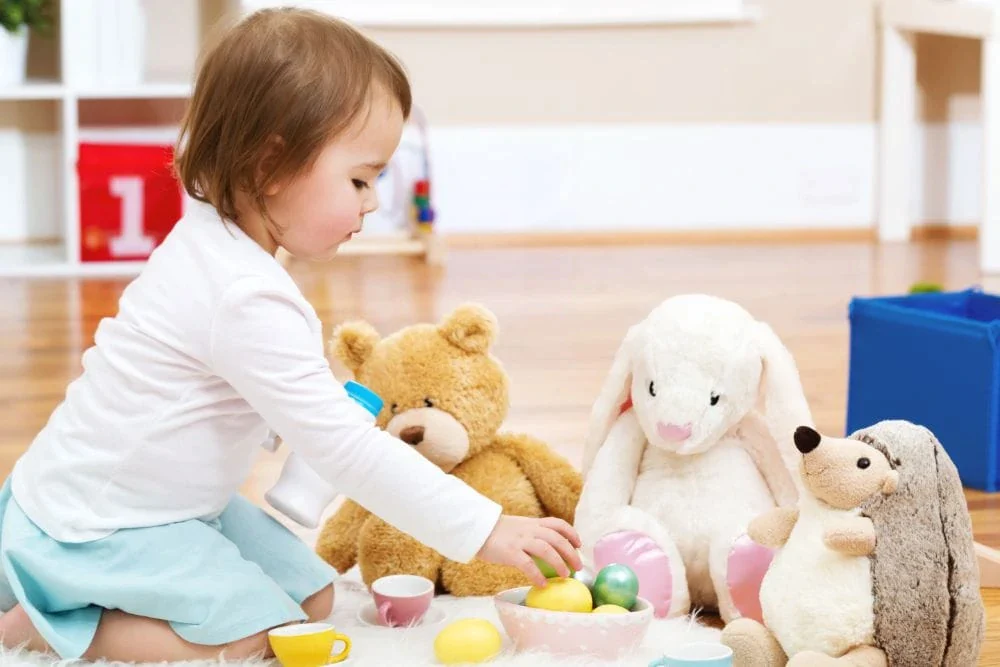In the world of childhood, few things provide as much comfort and companionship as a soft, cuddly stuffed animal. These plush friends aren’t just toys; they play a vital role in a child’s development. From fostering emotional intelligence to nurturing creativity, stuffed animals from brands like Jelly cat have a profound impact on growing minds. So, this post will explore how these cuddly companions influence child development in a way that goes beyond mere play.
A Source of Comfort and Security
For many children, a stuffed animal is more than just a plaything; it’s a source of comfort and security. These huggable friends often become a child’s confidant, providing a sense of safety during both daytime adventures and nighttime slumbers. The presence of a beloved stuffed animal can ease separation anxiety, providing a reassuring constant in a child’s ever-changing world.
Developing Emotional Intelligence
Emotional intelligence, the ability to recognise, understand, and manage emotions, is a critical skill that shapes a child’s social interactions and overall well-being. As such, stuffed animals serve as valuable emotional companions, allowing children to express and explore their feelings. Through imaginative play and conversations with their plush friends, children learn to identify and process complex emotions.
Empathy and Compassion
Stuffed animals also play a role in nurturing empathy and compassion in children. By caring for their plush companions, children develop a sense of responsibility and empathy toward others. They mimic the caring gestures they receive from their caregivers, such as feeding, comforting, and protecting their stuffed animals. These experiences foster a sense of empathy that extends to their interactions with people.
Encouraging Creativity and Imagination
Stuffed animals are versatile playmates that can become anything a child’s imagination desires. A teddy bear can transform into a fearless explorer, a patient-doctor, or a daring superhero. This imaginative play encourages creativity and problem-solving skills as children create scenarios and storylines for their plush companions. The simple act of giving voices and personalities to these toys boosts cognitive development.
Promoting Language Development
Stuffed animals are wonderful listeners and conversational partners for children. Engaging in conversations with their plush friends helps kids develop language skills. They practice articulating thoughts and feelings, expand their vocabulary, and improve their communication abilities. These interactions also boost self-confidence, as children feel heard and valued by their attentive stuffed companions.
Aiding in Transition and Change
Life is full of transitions and changes, from starting school to moving to a new home. Stuffed animals can be crucial allies during these times of upheaval. Their familiar presence provides a sense of continuity and stability, helping children navigate and adapt to new environments and routines more smoothly.
Fostering Independence
Stuffed animals encourage a sense of independence in children. They become confidants that children can turn to for comfort and reassurance when their parents or caregivers aren’t around. This newfound independence bolsters a child’s self-esteem and sense of agency as they learn to navigate their emotions and challenges with the support of their plush friends.
Conclusion
The impact of stuffed animals on child development is profound and enduring. These cuddly companions from brands like Jelly cat provide comfort, foster emotional intelligence, encourage creativity, and promote various cognitive and social growth aspects. From the earliest stages of childhood to later years, the bond between children and their stuffed animals leaves a lasting impression, equipping them with valuable skills and a sense of security that can benefit them throughout life. So, when you see a child clutching their beloved teddy bear or snuggling with their plush friend, know that there’s more at play than meets the eye—a world of emotional growth and lifelong companionship is unfolding.

